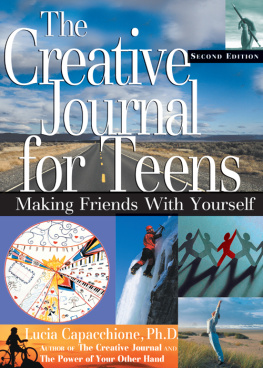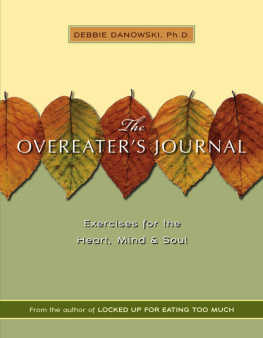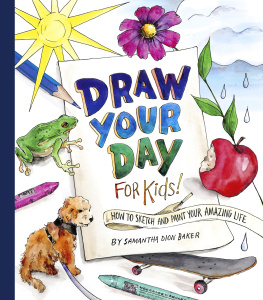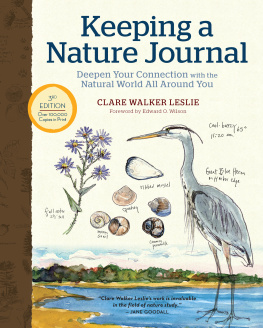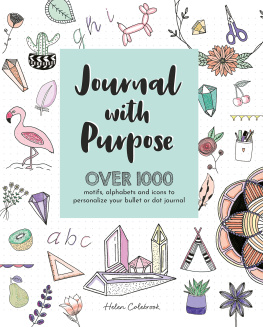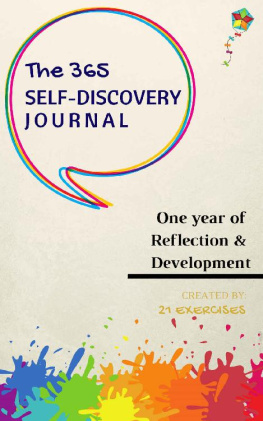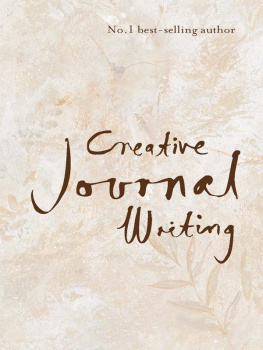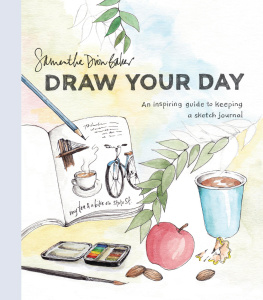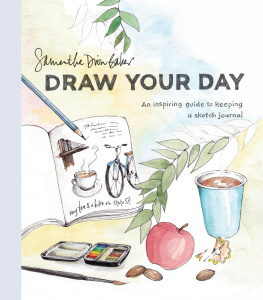Leaving a Trace: On Keeping a Journal
"Anyone thinking of starting a journal or already maintaining one will find this book quite useful.... Alexandra Johnson provides practical advice including changing tone, length, schedule, and case, etc., to liven up the entries and keep the writer fresh."
--Midwest Book Review
"Elegantly written.... Johnson's enthusiasm for diaries is infectious."
--Kirkus Reviews
"For the beginner, Johnson shows how to simply stick with journaling and suggests subject matter to include. For the seasoned diarist, she offers creative brainstorming exercises and advice on how to shape a journal into a memoir."
--Ross McCammon, American Way
"Leaving a Trace is beautifully written."
--Denise S. Sticha, Library Journal
"A wonderful new book.... As Johnson began to study the art of journal-keeping, she discovered ways of getting around the problems inherent in the form: self-censoring; fear of having one's diary lost, stolen, or discovered; old ideas about what constitutes a diary and what doesn't; and more. Through all of this, Johnson expertly weaves diary lore."
--Karen Sandstrom, Cleveland Plain Dealer
"Warning: if you buy this book, you might as well buy a journal at the same time. Alexandra Johnson's lovely and practical prose will assist you in overcoming virtually every inhibition you've had about committing words to paper, and will inspire you to tell, in whatever form you choose, the important story of yourself."
--Elizabeth Berg, author of Open House
The Hidden Writer:
Diaries and the Creative Life
Copyright (c) 2001 by Alexandra Johnson All rights reserved. No part of this book may be reproduced in any form or by any electronic or mechanical means, including information storage and retrieval systems, without permission in writing from the publisher, except by a reviewer who may quote brief passages in a review.
Hachette Book Group 237 Park Avenue
New York, NY 10017
Visit our website at www.HachetteBookGroup.com
First eBook Edition: September 2009
ISBN: 978-0-316-08241-9
For my grandmother Florence
Contents

All serious daring starts within.
--EUDORA WELTY
There looms ahead of me the shadow of some kind of form which the diary might attain. I might in the course of time learn what it is that one can make of this loose, drifting material of life; finding another use for it.
--VIRGINIA WOOLF

New Year's Day, Tuesday, Jan 1st. I think I will try to keep a diary this year.
I stared at that sentence one autumn afternoon, holding a stranger's diary in my hands. It was a soft-cover exercise book, chosen, I'm sure, so no one would suspect it was a diary and be tempted to read it. But I was and I did. With each page, a stranger's life slowly unfolded: waiting for someone named Charlie to return from college; having her ice skates sharpened at a nearby frozen pond; going into Boston with her sister Mattie to buy sheet music; celebrating her twenty-first birthday, glad the absent young man had sent violets that survived a snowstorm.
I was given the diary by the sole survivor of a family who had known the woman. The woman who kept the journal, I was told, had lived in the house I now own. A woman, I now saw in my imagination, who once climbed the same narrow flight of stairs each night and who looked out at our two pear trees still bearing fruit. A woman who wrote in her diary in 1895, plotting her life in sepia ink.
Could she have imagined how a century later someone in her own house would be fascinated by the clues she left of a life that probably seemed immensely dull to her at the time? (I imagined her scribbling in the journal like homework, the task vaguely self-improving.) Was it her only diary? Or did she burn later ones? I needed to know: What happened late that summer of 1895? Did Charlie vanish? How did he finally break her heart? I hoped that heartbreak wasn't lurking in the unexpected: those pale gray eyes of her close friend Kitty. Toward the diary's end the handwriting is frantic--the loops of the l's swell like lungs bursting.
As I closed Elizabeth Howe's diary, I thought about how, if we can't keep diaries ourselves, we still love reading others', eavesdropping on lives in private conversation with themselves. With each page I watched Howe try to find a narrative shape for her life, a way to tell its story, if only to herself. In stolen private moments, her hand recorded what I'm sure her brain constantly told her was of no importance: her life. From her journal I knew hers was a quiet but hungrily alive life. The pages chronicled a twenty-one-year-old music teacher secretly thrilled by solitude, love letters, fresh peaches wrapped in tissue, ice storms filigreeing the windows at night with crystal spiderwebs.
Those details from her diary lingered in my mind all afternoon. But I found that one nagged in particular. To earn pocket money, Elizabeth Howe and her sister spent a mild May afternoon copying names from gravestones into a ledger; the cemetery was soon to be relocated. On that bright spring day, she noted, the air was "sharp with lilac." It was a change from bitter winters whose winds had eroded so many tombstones. To trace the oldest names, she ran her fingers over the hollowed grooves, like Braille. I wondered as she traced those ancient New England names, copied for pennies a name, if she was haunted by how many had been lost to memory. Here were lives as blank as their slate markers. The next day, her diary stops its complaining. The entries are longer. Suddenly, the pages question if she has talent as a pianist. Or, as she wondered in her journal, was her destiny instructing thankless pupils forever?
I'll never know the answers. But as she copied name after name, I'm sure she couldn't help wondering about those lives, just as I did about hers now. What had been their ambitions, regrets, last thoughts, deepest earthly pleasures? What illnesses had they survived? How many safe childbirths? Whose name was the last they called out for? (I picture her bent over the ledger lost in thought, her chestnut hair so shiny you could see your reflection in it.) "Seven headstones too hard to read," she noted that night in the journal, disturbed by those unclaimed lives. Knowing what each had accomplished within a life was as hard as guessing the color of their eyes.
I placed her thin exercise book on a shelf in the same room where I write this now. It sits up high, near a number of the same novels her journal records her reading on long summer nights--Wuthering Heights, David Copperfield, Silas Marner. I like to think she wrote secretly in her diary here. Since then, this room's shelves have filled with other diaries and journals, a good many of them published, some sent to me while I wrote this book. My hand, like a dowsing rod, goes to them during dry seasons: to console, to inspire, to remind me how others used a diary to deepen a life, or negotiate the obstacle course of creativity.
On the same shelf where Elizabeth Howe's journal now sits are a half-dozen notebooks I kept at her same age. On the first page of the earliest notebook, I'd copied a diary entry from Virginia Woolf, whose novels and diaries claim an entire shelf of their own. At thirty-four, a newly inspired Woolf started keeping a diary once again.
What sort of diary should I like mine to be? Something loose knit and yet not slovenly, so elastic that it will embrace any thing, solemn, slight or beautiful that comes into my mind. I should like it to resemble some deep old desk, or capacious hold-all, in which one flings a mass of odds and ends without looking. I should like to come back, after a year or two, and find that the collection had sorted itself... into a mould, transparent enough to reflect the light of our life.


